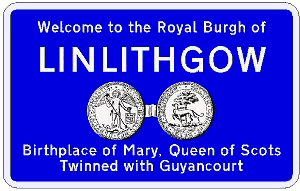Burgh





Burgh is a term that has historical significance in the context of Scotland, England, and other parts of the British Isles. It refers to a type of town or settlement that historically was granted certain legal rights and privileges. These rights often included aspects of self-governance, market rights, and other forms of autonomy. The concept of a burgh has evolved over time, reflecting changes in social, economic, and political structures.
Origins and Development[edit]
The origins of the burgh can be traced back to the early medieval period. In Scotland, the establishment of burghs was a key part of the Scottish monarchy's strategy to encourage trade and bring about economic development. Burghs were strategically located at key points, such as river crossings, harbor locations, or along important trade routes.
In England, similar settlements were known as boroughs, which shared many characteristics with Scottish burghs, including self-governance and market rights. The term "burgh" itself is derived from the Old English word "burh," meaning a fortified settlement.
Legal Status and Governance[edit]
Burghs were distinguished from other settlements by their legal status, which was conferred by a charter granted by the monarch or a feudal lord. This charter outlined the rights and privileges of the burgh, including the ability to hold markets, collect tolls, and in some cases, the right to self-governance through a town council.
The governance of a burgh was typically overseen by a group of elected officials, including a Provost, Bailies, and a council of burgesses. These officials were responsible for the administration of the burgh, including the enforcement of laws, maintenance of infrastructure, and the regulation of trade.
Economic and Social Role[edit]
Burghs played a significant role in the economic development of Scotland and England during the medieval and early modern periods. They were centers of trade and commerce, attracting merchants and craftsmen from across the region. The right to hold a market was particularly valuable, as it allowed for the exchange of goods and services and contributed to the economic prosperity of the settlement.
Socially, burghs were dynamic places, with a mix of social classes including merchants, craftsmen, laborers, and others. The establishment of guilds within burghs helped to regulate trade practices and protect the interests of their members.
Legacy[edit]
Today, the legacy of burghs can be seen in the many towns and cities across Scotland and England that originated as medieval burghs. While the legal and administrative framework of burghs has evolved, the historical significance of these settlements continues to be recognized. Many former burghs retain the term in their names or have preserved aspects of their medieval layout and architecture.
See Also[edit]
Ad. Transform your life with W8MD's Budget GLP-1 injections from $49.99


W8MD offers a medical weight loss program to lose weight in Philadelphia. Our physician-supervised medical weight loss provides:
- Weight loss injections in NYC (generic and brand names):
- Zepbound / Mounjaro, Wegovy / Ozempic, Saxenda
- Most insurances accepted or discounted self-pay rates. We will obtain insurance prior authorizations if needed.
- Generic GLP1 weight loss injections from $49.99 for the starting dose of Semaglutide and $65.00 for Tirzepatide.
- Also offer prescription weight loss medications including Phentermine, Qsymia, Diethylpropion, Contrave etc.
NYC weight loss doctor appointmentsNYC weight loss doctor appointments
Start your NYC weight loss journey today at our NYC medical weight loss and Philadelphia medical weight loss clinics.
- Call 718-946-5500 to lose weight in NYC or for medical weight loss in Philadelphia 215-676-2334.
- Tags:NYC medical weight loss, Philadelphia lose weight Zepbound NYC, Budget GLP1 weight loss injections, Wegovy Philadelphia, Wegovy NYC, Philadelphia medical weight loss, Brookly weight loss and Wegovy NYC
|
WikiMD's Wellness Encyclopedia |
| Let Food Be Thy Medicine Medicine Thy Food - Hippocrates |
Medical Disclaimer: WikiMD is not a substitute for professional medical advice. The information on WikiMD is provided as an information resource only, may be incorrect, outdated or misleading, and is not to be used or relied on for any diagnostic or treatment purposes. Please consult your health care provider before making any healthcare decisions or for guidance about a specific medical condition. WikiMD expressly disclaims responsibility, and shall have no liability, for any damages, loss, injury, or liability whatsoever suffered as a result of your reliance on the information contained in this site. By visiting this site you agree to the foregoing terms and conditions, which may from time to time be changed or supplemented by WikiMD. If you do not agree to the foregoing terms and conditions, you should not enter or use this site. See full disclaimer.
Credits:Most images are courtesy of Wikimedia commons, and templates, categories Wikipedia, licensed under CC BY SA or similar.
Translate this page: - East Asian
中文,
日本,
한국어,
South Asian
हिन्दी,
தமிழ்,
తెలుగు,
Urdu,
ಕನ್ನಡ,
Southeast Asian
Indonesian,
Vietnamese,
Thai,
မြန်မာဘာသာ,
বাংলা
European
español,
Deutsch,
français,
Greek,
português do Brasil,
polski,
română,
русский,
Nederlands,
norsk,
svenska,
suomi,
Italian
Middle Eastern & African
عربى,
Turkish,
Persian,
Hebrew,
Afrikaans,
isiZulu,
Kiswahili,
Other
Bulgarian,
Hungarian,
Czech,
Swedish,
മലയാളം,
मराठी,
ਪੰਜਾਬੀ,
ગુજરાતી,
Portuguese,
Ukrainian
